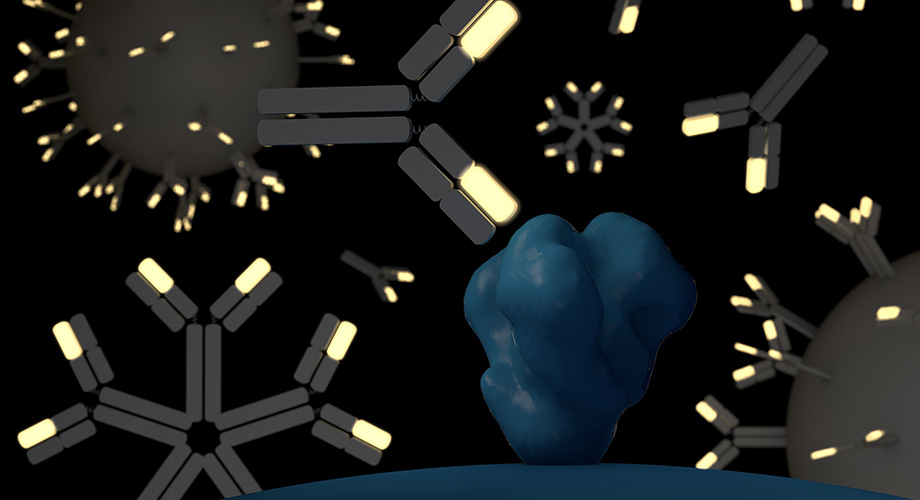
Engineered immune cells produce antibodies to fight HIV
Cells removed from patients’ bloodstreams and genetically altered may allow more effective vaccines for HIV, influenza, hepatitis
February 12, 2019
LA JOLLA, CA — Scripps Research scientists have successfully re-engineered human B cells to produce antibodies that can neutralize, or disable, human immunodeficiency virus (HIV). The technique they describe could one day be used to generate new, broadly acting vaccines or therapies against not only HIV but other pathogens such as influenza and hepatitis.
“We are exploring the idea of using genetic engineering to enhance the immune system’s ability to protect us from disease,” says James Voss, PhD, an investigator in the Department of Immunology and Microbiology at Scripps Research and first author of the new paper, published in the journal eLife.
B cells—also called B lymphocytes—are responsible for producing antibodies that can recognize pathogens and launch an immune attack against them. Despite the fact the human body can make billions of different antibodies, ones that can protect against HIV are very rarely generated.
“In the case of HIV, the virus has evolved features to escape from the normal repertoire of human antibodies,” says Voss.
But protective antibodies against HIV do exist—a small percentage of HIV patients naturally develop antibodies that can broadly neutralize the virus. Voss and his colleagues developed a strategy by which they could edit the genomes of B cells—using CRISPR-Cas9 gene editing—so that the cells would produce the same broadly neutralizing HIV antibodies that have been found in some patients. They showed that these edited B cells still had the capability to become activated, divide, and to go through the maturation process by which B cells modify their own antibody genes to produce improved antibodies.
Next, the researchers used the approach in B cells that had been purified from the blood of three healthy volunteers. Once again, they showed that the engineered B cells carried out all their normal function and produced the HIV antibodies.
Anti-cancer immunotherapies currently exist in which scientists isolate the T cells of patients, genetically alter them to recognize cancer cells, and put them back in the patients’ bloodstreams to fight tumors. Voss says his new work is one of the first proof-of-principles that a similar approach could work with B cells and infectious diseases.
More work is needed to show that the engineered B cells will work to fight pathogens in an animal model—or humans. The cells could potentially be used in both preventive approaches—as a vaccine— or as a treatment. Voss’s team is planning experiments in which they test engineered cells in mice to see if they can produce protective HIV antibodies in response to vaccination.
“We can insinuate that if this works for HIV, it could work for influenza, hepatitis and parasites like malaria,” says Voss. “But the next important question is whether this idea works in animal models.”
In addition to Voss, authors of the study, “Reprogramming the antigen specificity of B cells using genome-editing techniques,” include Raiees Andrabi, Roberta Fuller, Katelyn Porter, Deli Huang, Wenjuan Li, Devin Sok, Khoa Le, Bryan Briney, Lars Hangartner, Ann Feeney, Davis Nemazee and Dennis Burton of Scripps Research; Alicia Gonzalez-Martin of the Universidad Autónoma de Madrid; Ben Murrell of the University of California, San Diego; Laura McCoy of University College London; and Morgan Chateau, Geoffrey Rogers and Paula Cannon of the University of Southern California.
This work was supported by funding from the National Institutes of Health (5R01DE025167-05), the Bill & Melinda Gates Foundation (OPP1183956), a Ramón y Cajal Merit Award from Ministerio de Ciencia, Innovacion y Universidades (RYC-2016-21155), and a Marie Curie Fellowship (FP7-PEOPLE-2013-IOF).
For more information, contact press@scripps.edu

